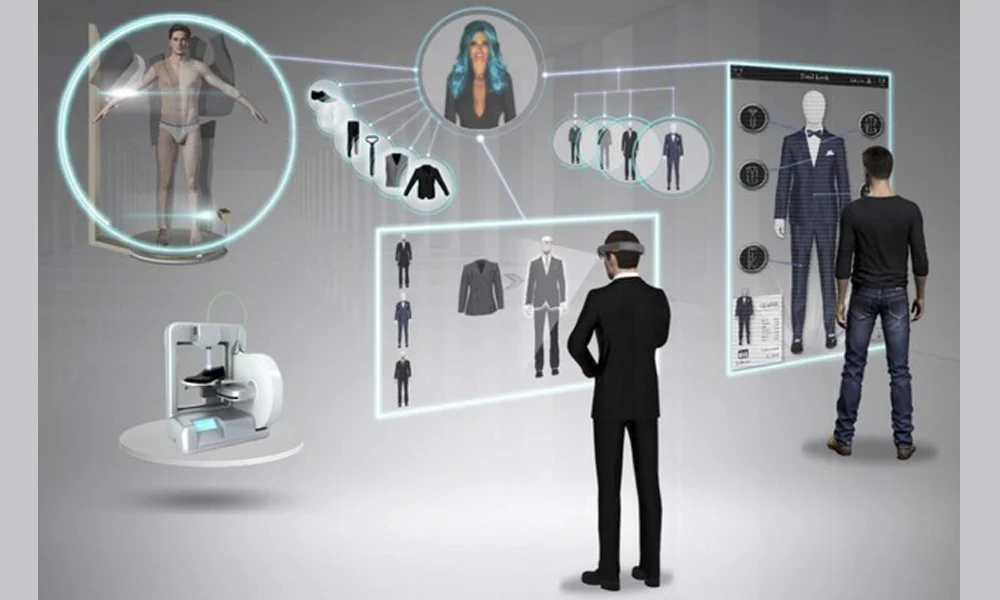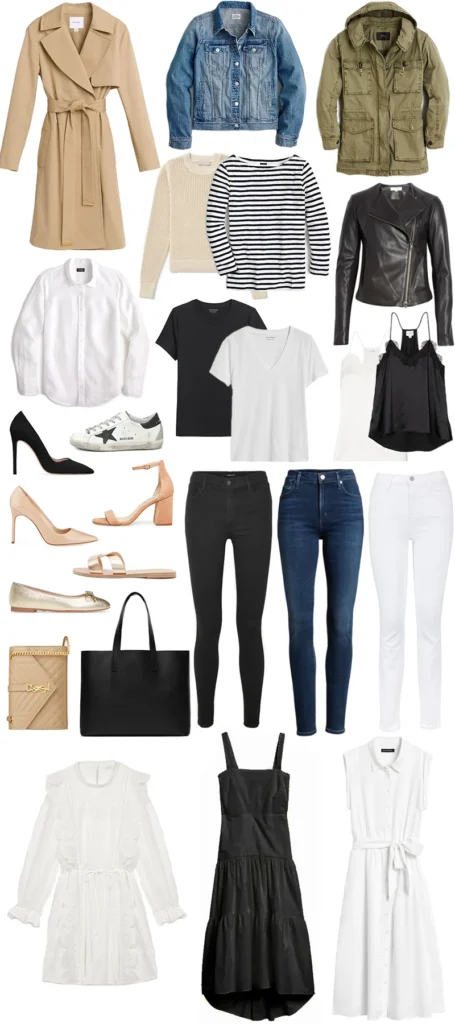AI in Fashion: How Artificial Intelligence is Revolutionizing Design and Retail is a hot topic in the fashion industry. Artificial intelligence is rapidly changing the way fashion designers create, produce, and sell their products. From trend forecasting to personalized shopping experiences, AI is transforming every aspect of the fashion business. This technology is enabling designers to analyze big data and consumer behavior to create more targeted and efficient designs. Additionally, AI is revolutionizing the retail experience by offering virtual try-on solutions and personalized styling recommendations, enhancing the overall customer experience and increasing sales. As a result, AI is reshaping the fashion industry and setting new standards for design and retail.
The impact of artificial intelligence on the fashion industry is not limited to design and retail. The use of AI technologies such as machine learning, computer vision, and natural language processing is also revolutionizing supply chain management, sustainability practices, and customer engagement. These advancements are leading to more sustainable and ethical production processes, as well as improved customer interactions through chatbots and virtual assistants. Moreover, AI is enabling fashion brands to optimize inventory management and streamline logistics, ultimately reducing waste and improving efficiency. As a result, the integration of AI in fashion is not only transforming design and retail but also reshaping the entire industry ecosystem.
1. AI-Powered Design Tools in Fashion
Artificial intelligence has revolutionized the fashion industry by introducing AI-powered design tools that streamline the design process. These tools use machine learning algorithms to analyze trends, consumer preferences, and market data to assist designers in creating innovative and marketable designs. By utilizing AI, designers can gain valuable insights into customer behavior and preferences, allowing them to create personalized and on-trend fashion items.
Furthermore, AI-powered design tools can automate repetitive tasks, such as pattern generation and color selection, saving designers time and effort. This technology also enables designers to experiment with new textures, shapes, and styles, leading to the creation of unique and cutting-edge fashion pieces. Overall, AI-powered design tools have significantly enhanced the creative process in fashion design, fostering innovation and efficiency.
2. Personalized Shopping Experiences with AI
Artificial intelligence plays a crucial role in delivering personalized shopping experiences to consumers in the fashion industry. AI algorithms analyze customer data, including purchase history, browsing behavior, and social media activity, to provide personalized product recommendations and styling suggestions. This level of personalization enhances the overall shopping experience for consumers, making it more tailored to their individual preferences and style.
Additionally, AI-powered virtual fitting rooms allow customers to visualize how a garment will look on them before making a purchase, improving confidence in their buying decisions. By leveraging AI, fashion retailers can create targeted marketing campaigns and promotions, effectively reaching their desired audience with relevant content. As a result, AI-driven personalization not only benefits consumers by offering tailored experiences but also helps fashion brands increase customer satisfaction and loyalty.
3. AI and Sustainable Fashion
Artificial intelligence is driving innovation in sustainable fashion by optimizing the production process and reducing waste. AI algorithms can analyze supply chain data to identify areas where sustainability can be improved, such as reducing energy consumption and minimizing environmental impact. By optimizing manufacturing processes, AI contributes to the creation of eco-friendly and sustainable fashion products.
Furthermore, AI-powered predictive analytics help fashion brands forecast demand more accurately, minimizing overproduction and excess inventory. This not only reduces waste but also supports a more sustainable and ethical approach to fashion production. As consumer demand for sustainable fashion continues to grow, AI plays a crucial role in helping brands align with environmental and social responsibility goals.
4. AI in Trend Forecasting
Artificial intelligence has transformed the traditional approach to trend forecasting in the fashion industry. AI algorithms can analyze vast amounts of data from social media, runway shows, street style, and e-commerce platforms to identify emerging trends and consumer preferences in real time. This allows fashion brands to stay ahead of the curve and adapt their collections to align with current trends.
Additionally, AI-powered trend forecasting provides valuable insights into regional and demographic variations in fashion trends, enabling brands to tailor their offerings to specific markets. By leveraging AI, fashion companies can make data-driven decisions about which trends to invest in, ultimately reducing the risk of producing unwanted inventory. Overall, AI in trend forecasting not only enhances the accuracy of trend predictions but also helps fashion brands capitalize on market opportunities more effectively.
5. AI-Driven Supply Chain Optimization
Artificial intelligence is revolutionizing supply chain management in the fashion industry by optimizing inventory management, logistics, and production processes. AI algorithms can analyze historical sales data, market trends, and external factors to forecast demand accurately, enabling fashion brands to optimize their inventory levels and reduce excess stock.
Furthermore, AI-powered systems can enhance the efficiency of logistics and transportation by optimizing routes, reducing delivery times, and minimizing fuel consumption. By streamlining the supply chain, AI contributes to cost savings, reduced environmental impact, and overall operational efficiency for fashion companies. As a result, AI-driven supply chain optimization is becoming increasingly essential for maintaining a competitive edge in the fast-paced fashion industry.
6. AI-Enabled Virtual Assistants in Retail
Artificial intelligence has transformed the retail experience through the implementation of AI-enabled virtual assistants. These virtual assistants, powered by AI algorithms, can interact with customers, answer their questions, provide personalized recommendations, and assist with the purchasing process. By leveraging natural language processing and machine learning, virtual assistants offer a more seamless and personalized shopping experience for consumers.
AI-enabled virtual assistants also enable fashion retailers to handle customer inquiries and support at scale, freeing up human resources to focus on more complex tasks. Additionally, these virtual assistants can gather valuable customer insights and feedback, contributing to the refinement of product offerings and customer service strategies. Overall, AI-enabled virtual assistants are reshaping the retail landscape by enhancing customer engagement and satisfaction.
7. Ethical and Inclusive Fashion with AI
Artificial intelligence is driving progress towards ethical and inclusive fashion practices by facilitating size-inclusive and diverse representation in the industry. AI-powered tools can analyze and interpret body measurements to improve size recommendations and ensure a more inclusive fit for a diverse range of body types. By leveraging AI, fashion brands can reduce the likelihood of size-related returns and improve customer satisfaction.
Furthermore, AI algorithms can assist in identifying and addressing biases in advertising and marketing materials, promoting more inclusive and diverse representations of beauty and style. By embracing AI-driven solutions, fashion companies can champion inclusivity and ethical practices, ultimately fostering a more positive and empowering experience for all consumers. As the fashion industry continues to prioritize diversity and inclusivity, AI plays a pivotal role in driving meaningful change.
8. AI-Powered Customer Insights and Analytics
Artificial intelligence is revolutionizing the way fashion brands gather and leverage customer insights and analytics. AI algorithms can analyze vast amounts of data from various sources, including social media, e-commerce platforms, and customer interactions, to extract valuable insights into consumer behavior, preferences, and trends. This enables fashion brands to make data-driven decisions regarding product development, marketing strategies, and customer engagement initiatives.
Additionally, AI-powered customer analytics provide real-time feedback on product performance, market trends, and customer sentiment, allowing brands to adapt quickly to changing market dynamics. By understanding customer preferences and behaviors at a granular level, fashion companies can tailor their offerings to meet evolving consumer demands effectively. Overall, AI-powered customer insights and analytics empower fashion brands to stay competitive and responsive in a rapidly evolving industry.
| Topic | Description |
|---|---|
| Design | AI is being used to create unique and innovative designs by analyzing trends and customer preferences. |
| Manufacturing | AI is optimizing the manufacturing process by predicting demand, automating production, and reducing waste. |
| Retail | AI is personalizing the shopping experience, predicting buying behavior, and optimizing inventory management. |
| Sustainability | AI is helping fashion brands to make more sustainable decisions in material sourcing, production, and supply chain management. |
AI in Fashion is transforming the industry by revolutionizing the way designs are created, products are manufactured, and the shopping experience is personalized. It is also playing a crucial role in promoting sustainability and ethical practices in the fashion industry.




